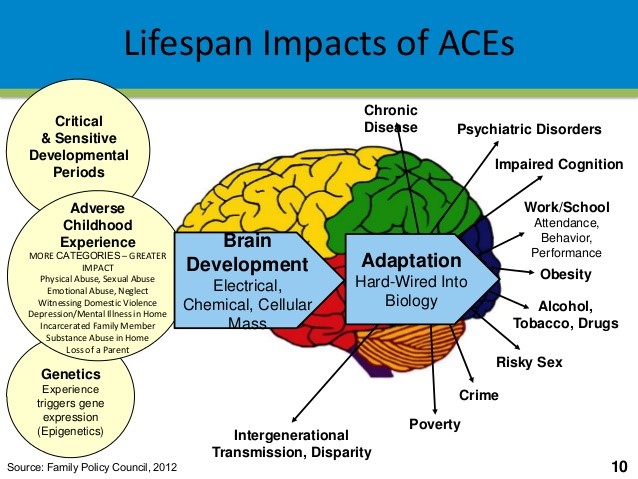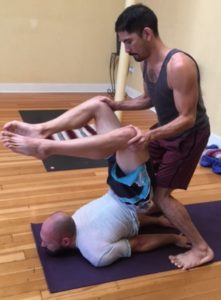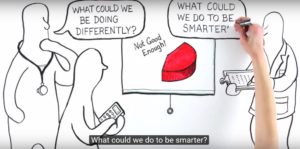By: Gabriel N. Davis MSW, MA
I talk to myself. She talks to herself. He talks to himself. We all talk to ourselves. Secret conversations enjoyable within the privacy of my mind, her mind, his mind, importantly separately and uniquely. Every individual with a unique narrator and perspective on reality. Secret narratives and stories all within our own minds. We spend so much time in our heads. You name it we are always talking to ourselves, prayer, meditation, exercising, working, playing, eating, sex, everything we do. You are your greatest story teller, author, and movie director. You are the master of the talking in your mind.
Professor Willhart of the University of Alabama reveals in four experiments participants who report a positive, neutral, or negative experience. The results of the studies find individuals who observe the events in their life as neutral with ongoing reflection, remembrance, and conversation will view the events as positive over time. When a person explains a negative event ongoing the event becomes more negative in observation, remembrance, and storytelling. We observe positive, neutral, and negative language. The language we choose, the grammar use we engage in, affects how we experience, participate, and how we deal with our lives. Importantly, language choice directly affects how we deal with challenges, create solutions, and engage in our life. What we say to ourselves inside our heads and how we feel directly connects. Philosophers such as Ludwig Wittgenstein, Martin Heidegger, and Hans-Georg Gadamer reflect on the state of being and perceive the connection between language, feelings, experience, perception, and observation. Together, harmony between thought and reality are found in the grammar of language. The verbs we use to describe our actions will dictate present and future personal action. Action verbs in the present and future tense are critical for pathways to doing and being.
Verbs which describe physiology, feelings, emotions, and thoughts. Positive verbs of physiology include “I am thankful for my body,” “I am thankful I can walk,” as well as, “I am thankful I can chew and swallow,” in addition do “I am thankful I can smell,” ” I am thankful I can taste,” I am thankful I can hear,” I am thankful I can touch,” and “I am thankful I can feel.”
Positive verbs describing feelings include. “I feel outgoing,” or “I feel grateful for my friends,” and “I feel appreciative for my gym.” As well as, “I feel excitement because I can choose what I want to do today,” “I feel humble because my gramma is 95 and has Alzheimer’s and I have my mind and memory.”

Positive verbs describing emotions include: “I emotionally happy because I am seeing my friends today,” as well “I am emotionally giddy because I will see the woman I adore later.” In addition to, “I am emotionally confident because I complete tasks and goals,” and “I have emotional excitement because I will see a band later.”
Positive verbs describing thought include. “I think this will work because I have a plan,” and “I think this is a good idea because I will feel healthy,” or “I think I am a kind and outgoing person who care about others.” As well as, “I think I am worth a life of excitement, joy, and fun.”

Science shows positive self-talk affects mood, attitude, confidence, productivity, efficiency, and more. Professor Willharts findings reveal positive self-talk directly relates to happiness and perspectives on personal obtainment of success. The reverse findings are true for negative self-talk language. Negative self-talk diminishes mood, decreases energy, transforms into a negative attitude, transforms small challenges into large challenges, challenges turn into problems, and create problems where none exist. A negative attitude does not focus on solutions or ideas to overcoming challenges and reaching a goal, completing a thought, and a feeling or thought of success.
The reality. Your negative self-talk is fucking you over. I know. I have seen, experience, and reflect a great deal on the choices I make and others make. Your positive self-talk is accomplishing and moving your life into motion, into doing, into being. The purpose of the article is not to promote you into diving into personal affirmations, positive self-talk, or positive thinking. Yet, have access to tools for correct language and thinking skills. I am no master. Yet overcome personal challenges and obstacles. My desire to be happy, healthy, and outgoing leads me down a path of healing, restoration, and growth. Science reveals the truth of these tools. Hopefully, your able to observe this article as an opportunity to present you a way to use such tools. I offer a perspective, as an individual, who has overcome personal demons. My demons are unique, different, yet I have overcome.
You are not told to do anything. This article is for an authentic leg up on life’s true potential. Influence on human emotions is done with thinking. Therefore, you can choose your emotional reaction or response through the use of your words and the use of your thoughts. Your perception of an experience determines the words you use for your interpretation of the experience.

Albert Ellis a forefather of modern psychology directly relates the words we use inside our heads to describe, remember, recall, and share our experiences with our self or others. How we choose our words and how you use words directly affects your emotional response to the memory and event. How you think and talk about your experiences will directly shape how you feel about your experiences.
Overreactions to events where we say negative things like: “I’m so stupid,” or “How could I have done that,” and”My life is over.” As well as, simple negative descriptions overgeneralizing, “this is the worst thing that has ever happened to me,” and “of course this would happen to me.” In reflection many things don’t ever register on important. The moment before the outrageous reaction there was a moment of negative self-talk. Trigger! Boom, and you’re off to the races. Things we often say and do are not particularly rational. However, we seem to say and do these ridiculous things anyway. The emotional residue of negative self-talk is underestimated, often unknown, and felt by others. Negative self-talk does not have to be dramatic, continuous, simple negative self-talk is equally long term detrimental. “This is so hard,” and “What if I don’t finish on time.”
Negative self-talk may lead to anger, madness, hatred, and destruction. The more negative self-talk projects how hard a situation seems or looks the harder the situation will become. Becoming accustom to a critical voice inside the head enables the ego as the ego learns to not observe how the thinking mind and self-talk affect mood and behavior in the present. The negative thinking mind will limit the rational observing thinking mind from engaging in the present moment. The ego thinking mind needs to assert dominance in the present. Dominance over breath, and control over the thinking mind. The breath allows the thinking mind to be in the body. When the thinking mind is under the direction of the breath and body then the thinking mind more easily accomplishes goals and tasks. The thinking mind needs to be present in the moment in order to be effective, efficient, and productive.
Simple things like chores. Such as washing the dishes that build up, “I don’t have time,” or “I have more clean dishes,” or “There’s too many to finish right now.” In addition to, excuses in folding laundry and unloading the dishwasher. Little persistent items hang around and collapse into larger and bigger challenges. We collapse the challenges and tasks into a negative opinion and stuckness. You create your stuckness.

Look at your stuckness and you will see your negative self-talk dam. You create your lake of negative self-talk and choose when to release your waters. You are the master of the dam.
The way you talk affects the moment and the subconscious. The real term in the present and the future memory. The way you talk to others shapes your perception of reality and this perception impacts your behavior in every moment. Perception is critical. Unknown perceptions impacts all of us. Ignore your perceptions at your peril. The science fact is the words you use to perceive your life impacts your behavior. If you perceive life is unfair you will act according to the view. Studies reveal people who have a negative outlook about their work and determine their work does not matter will not produce the same result. The unfair view becomes reality. The persons who believe success is around the corner will act on the fundamental view of success and will work to achieve success. Correct, success does not always come even with proper planning, assets, funding, and dedication to work. Failure of a project or goal will and does occur even with correct thinking. However, the fact is personal belief is key to success.
We have the choice to determine how we think about and talk about our challenges. Reject the sense of the injury and the injury disappears in your attitude says Marucs Aruellius. I know this as truth. Experiment on your injuries and find out how your attitude can perceive injury versus healing, versus fun challenge, and versus growth.
Consider your life is the way it is because of your self-talk and what you believe you can and cannot do rather than the reality itself. If you look outside yourself for your circumstances and work to relieve the circumstance, consequently, your character and brain will not.
Circumstance may not change and circumstance may change. What if that thing you are working toward does not happen and what do you after all your goals are successful? Even if the thing does arrive what happens to your life now and in between that day of success? You do not have to find the answer, because you are the answer. You do not have to wait for a sign or miracle, you are the sign, you are the miracle, and your life is waiting on you.
Retrain your brain one word at a time.
Scientists know thoughts change the physical structure of human brains. This is achievable through neural plasticity through arranging and reengaging the way humans think and behave. You can consciously direct and modify these pathways, through conscious self-talk to cut through and take control of life. Creating habits and strong assertive language over time to make lasting change in your life.
You affect your brain biology with your emotions. You need to shape your emotions with the words you use. Conscious choice to walk in a way that is helpful rather than harmful. Framing challenges in a way you can see and interact with the world. Creating and interacting with your reality. Acting and living in reality, through how you create with language, with the word.

How you relate to circumstances directly affects outcomes. How you talk about life events directly influences your perception of reality. This conversation with yourself and others shapes your reality.
Relate to language and events as opportunities. Become engaging, curious, and a hold onto intrigue. Assertive versus narrative in the mind. Shift the self-talk from a narrative about the self and others in life, a dialogue of option, into becoming assertive, a dialogue of goals and how to act on the goals. Assertive in the moment, in the present, in the now. Happiness is best when present
Talk about, who you will be, what you should, could or want to become. Language which describes what you are going to do is always later.
Assertive self-talk is for this moment if time. I am. I embrace. I accept. I assert. Powerful and commanding use of language. Rather than I will or I am going to. What is to come rather than what is here.
In conclusion, this article highlights how word use affects our mood and memory. Word use which is negative, neutral, or positive affects our memory and our mood. Thus, neutral and positive word choice need to outweigh negative word use and word choice. The idea is not to eliminate negativity, yet focus on neutral and positive words when perceiving reality.
Leave a Comment
Last Updated: October 20, 2017 by Gabriel
How I Unfuck Myself and Smarter People Than Me Unfuck Their Self
By: Gabriel N. Davis MSW, MA
I talk to myself. She talks to herself. He talks to himself. We all talk to ourselves. Secret conversations enjoyable within the privacy of my mind, her mind, his mind, importantly separately and uniquely. Every individual with a unique narrator and perspective on reality. Secret narratives and stories all within our own minds. We spend so much time in our heads. You name it we are always talking to ourselves, prayer, meditation, exercising, working, playing, eating, sex, everything we do. You are your greatest story teller, author, and movie director. You are the master of the talking in your mind.
Professor Willhart of the University of Alabama reveals in four experiments participants who report a positive, neutral, or negative experience. The results of the studies find individuals who observe the events in their life as neutral with ongoing reflection, remembrance, and conversation will view the events as positive over time. When a person explains a negative event ongoing the event becomes more negative in observation, remembrance, and storytelling. We observe positive, neutral, and negative language. The language we choose, the grammar use we engage in, affects how we experience, participate, and how we deal with our lives. Importantly, language choice directly affects how we deal with challenges, create solutions, and engage in our life. What we say to ourselves inside our heads and how we feel directly connects. Philosophers such as Ludwig Wittgenstein, Martin Heidegger, and Hans-Georg Gadamer reflect on the state of being and perceive the connection between language, feelings, experience, perception, and observation. Together, harmony between thought and reality are found in the grammar of language. The verbs we use to describe our actions will dictate present and future personal action. Action verbs in the present and future tense are critical for pathways to doing and being.
Verbs which describe physiology, feelings, emotions, and thoughts. Positive verbs of physiology include “I am thankful for my body,” “I am thankful I can walk,” as well as, “I am thankful I can chew and swallow,” in addition do “I am thankful I can smell,” ” I am thankful I can taste,” I am thankful I can hear,” I am thankful I can touch,” and “I am thankful I can feel.”
Positive verbs describing feelings include. “I feel outgoing,” or “I feel grateful for my friends,” and “I feel appreciative for my gym.” As well as, “I feel excitement because I can choose what I want to do today,” “I feel humble because my gramma is 95 and has Alzheimer’s and I have my mind and memory.”
Positive verbs describing emotions include: “I emotionally happy because I am seeing my friends today,” as well “I am emotionally giddy because I will see the woman I adore later.” In addition to, “I am emotionally confident because I complete tasks and goals,” and “I have emotional excitement because I will see a band later.”
Positive verbs describing thought include. “I think this will work because I have a plan,” and “I think this is a good idea because I will feel healthy,” or “I think I am a kind and outgoing person who care about others.” As well as, “I think I am worth a life of excitement, joy, and fun.”
Science shows positive self-talk affects mood, attitude, confidence, productivity, efficiency, and more. Professor Willharts findings reveal positive self-talk directly relates to happiness and perspectives on personal obtainment of success. The reverse findings are true for negative self-talk language. Negative self-talk diminishes mood, decreases energy, transforms into a negative attitude, transforms small challenges into large challenges, challenges turn into problems, and create problems where none exist. A negative attitude does not focus on solutions or ideas to overcoming challenges and reaching a goal, completing a thought, and a feeling or thought of success.
The reality. Your negative self-talk is fucking you over. I know. I have seen, experience, and reflect a great deal on the choices I make and others make. Your positive self-talk is accomplishing and moving your life into motion, into doing, into being. The purpose of the article is not to promote you into diving into personal affirmations, positive self-talk, or positive thinking. Yet, have access to tools for correct language and thinking skills. I am no master. Yet overcome personal challenges and obstacles. My desire to be happy, healthy, and outgoing leads me down a path of healing, restoration, and growth. Science reveals the truth of these tools. Hopefully, your able to observe this article as an opportunity to present you a way to use such tools. I offer a perspective, as an individual, who has overcome personal demons. My demons are unique, different, yet I have overcome.
You are not told to do anything. This article is for an authentic leg up on life’s true potential. Influence on human emotions is done with thinking. Therefore, you can choose your emotional reaction or response through the use of your words and the use of your thoughts. Your perception of an experience determines the words you use for your interpretation of the experience.
Albert Ellis a forefather of modern psychology directly relates the words we use inside our heads to describe, remember, recall, and share our experiences with our self or others. How we choose our words and how you use words directly affects your emotional response to the memory and event. How you think and talk about your experiences will directly shape how you feel about your experiences.
Overreactions to events where we say negative things like: “I’m so stupid,” or “How could I have done that,” and”My life is over.” As well as, simple negative descriptions overgeneralizing, “this is the worst thing that has ever happened to me,” and “of course this would happen to me.” In reflection many things don’t ever register on important. The moment before the outrageous reaction there was a moment of negative self-talk. Trigger! Boom, and you’re off to the races. Things we often say and do are not particularly rational. However, we seem to say and do these ridiculous things anyway. The emotional residue of negative self-talk is underestimated, often unknown, and felt by others. Negative self-talk does not have to be dramatic, continuous, simple negative self-talk is equally long term detrimental. “This is so hard,” and “What if I don’t finish on time.”
Negative self-talk may lead to anger, madness, hatred, and destruction. The more negative self-talk projects how hard a situation seems or looks the harder the situation will become. Becoming accustom to a critical voice inside the head enables the ego as the ego learns to not observe how the thinking mind and self-talk affect mood and behavior in the present. The negative thinking mind will limit the rational observing thinking mind from engaging in the present moment. The ego thinking mind needs to assert dominance in the present. Dominance over breath, and control over the thinking mind. The breath allows the thinking mind to be in the body. When the thinking mind is under the direction of the breath and body then the thinking mind more easily accomplishes goals and tasks. The thinking mind needs to be present in the moment in order to be effective, efficient, and productive.
Simple things like chores. Such as washing the dishes that build up, “I don’t have time,” or “I have more clean dishes,” or “There’s too many to finish right now.” In addition to, excuses in folding laundry and unloading the dishwasher. Little persistent items hang around and collapse into larger and bigger challenges. We collapse the challenges and tasks into a negative opinion and stuckness. You create your stuckness.
Look at your stuckness and you will see your negative self-talk dam. You create your lake of negative self-talk and choose when to release your waters. You are the master of the dam.
The way you talk affects the moment and the subconscious. The real term in the present and the future memory. The way you talk to others shapes your perception of reality and this perception impacts your behavior in every moment. Perception is critical. Unknown perceptions impacts all of us. Ignore your perceptions at your peril. The science fact is the words you use to perceive your life impacts your behavior. If you perceive life is unfair you will act according to the view. Studies reveal people who have a negative outlook about their work and determine their work does not matter will not produce the same result. The unfair view becomes reality. The persons who believe success is around the corner will act on the fundamental view of success and will work to achieve success. Correct, success does not always come even with proper planning, assets, funding, and dedication to work. Failure of a project or goal will and does occur even with correct thinking. However, the fact is personal belief is key to success.
We have the choice to determine how we think about and talk about our challenges. Reject the sense of the injury and the injury disappears in your attitude says Marucs Aruellius. I know this as truth. Experiment on your injuries and find out how your attitude can perceive injury versus healing, versus fun challenge, and versus growth.
Consider your life is the way it is because of your self-talk and what you believe you can and cannot do rather than the reality itself. If you look outside yourself for your circumstances and work to relieve the circumstance, consequently, your character and brain will not.
Circumstance may not change and circumstance may change. What if that thing you are working toward does not happen and what do you after all your goals are successful? Even if the thing does arrive what happens to your life now and in between that day of success? You do not have to find the answer, because you are the answer. You do not have to wait for a sign or miracle, you are the sign, you are the miracle, and your life is waiting on you.
Retrain your brain one word at a time.
Scientists know thoughts change the physical structure of human brains. This is achievable through neural plasticity through arranging and reengaging the way humans think and behave. You can consciously direct and modify these pathways, through conscious self-talk to cut through and take control of life. Creating habits and strong assertive language over time to make lasting change in your life.
You affect your brain biology with your emotions. You need to shape your emotions with the words you use. Conscious choice to walk in a way that is helpful rather than harmful. Framing challenges in a way you can see and interact with the world. Creating and interacting with your reality. Acting and living in reality, through how you create with language, with the word.
How you relate to circumstances directly affects outcomes. How you talk about life events directly influences your perception of reality. This conversation with yourself and others shapes your reality.
Relate to language and events as opportunities. Become engaging, curious, and a hold onto intrigue. Assertive versus narrative in the mind. Shift the self-talk from a narrative about the self and others in life, a dialogue of option, into becoming assertive, a dialogue of goals and how to act on the goals. Assertive in the moment, in the present, in the now. Happiness is best when present
Talk about, who you will be, what you should, could or want to become. Language which describes what you are going to do is always later.
Assertive self-talk is for this moment if time. I am. I embrace. I accept. I assert. Powerful and commanding use of language. Rather than I will or I am going to. What is to come rather than what is here.
In conclusion, this article highlights how word use affects our mood and memory. Word use which is negative, neutral, or positive affects our memory and our mood. Thus, neutral and positive word choice need to outweigh negative word use and word choice. The idea is not to eliminate negativity, yet focus on neutral and positive words when perceiving reality.
Category: Personal Wellness
Recent Posts
Recent Comments
Categories